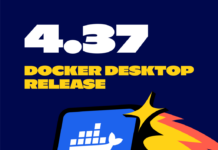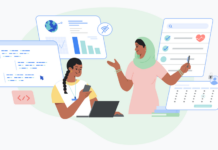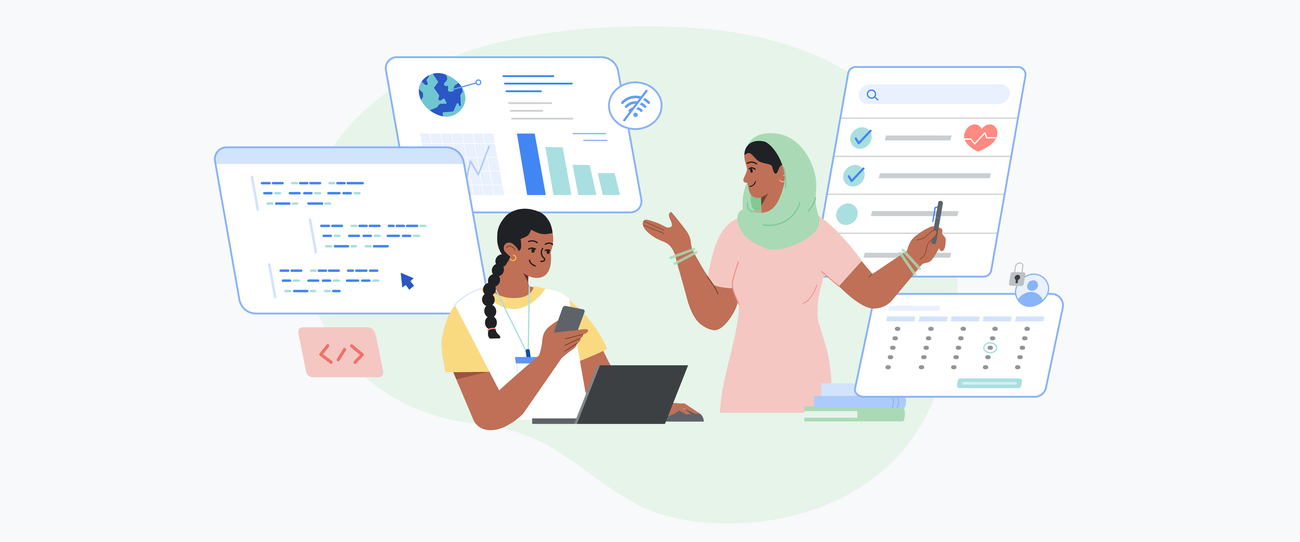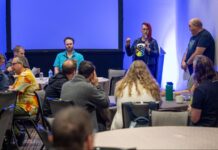Advancing Digital Health Developer Skills Through Immersive Workshops
In recent years, the landscape of digital health has been rapidly evolving, and a significant part of this transformation can be attributed to the efforts to upskill developers around the globe. Immersive workshops have played a crucial role in equipping developers with the necessary tools and knowledge to create innovative digital health applications. This article delves into how such workshops are shaping the future of digital health development.
One notable initiative in this area has been the collaboration with educational institutions and conferences worldwide to conduct Open Health Stack (OHS) workshops. For instance, a partnership with Kabarak University in Kenya led to the organization of bootcamps specifically tailored for IT students and emerging innovators. These bootcamps aimed at imparting essential concepts and tools required for building robust digital health applications. This hands-on learning experience allowed participants to dive deep into the intricacies of digital health solutions, preparing them to be at the forefront of the industry.
Similarly, in India, a developer-centric workshop was held during the country’s largest digital health conference. This event provided an invaluable opportunity for participants to engage in practical coding sessions focused on OHS components. By offering a platform for developers to hone their skills, these workshops are fostering a generation of professionals capable of tackling the challenges and demands of the digital health sector.
Exploring New AI Capabilities
As digital health technologies continue to expand, the potential for integrating artificial intelligence (AI) into healthcare applications is becoming increasingly apparent. OHS provides the foundational technical infrastructure required for such innovations, but the possibilities extend even further with AI capabilities.
Google has taken a significant step in this direction by releasing a suite of open weight models known as Health AI Developer Foundations. These models are designed to assist developers in building AI models tailored for healthcare applications more easily. The OHS team is actively collaborating with the developer community to gain insights into their needs. The ultimate goal is to create an enabling infrastructure that simplifies the process of developing AI-powered solutions in healthcare.
By leveraging AI, developers can create applications that offer enhanced diagnostic capabilities, personalized treatment plans, and improved patient care. The integration of AI into digital health applications is poised to revolutionize the way healthcare services are delivered, making them more efficient and effective.
Cultivating an OHS Community
A thriving global community of developers is at the heart of the OHS initiative. Based on feedback from this vibrant community, new technical features have been introduced to OHS, enabling developers to build applications faster and more securely. Recognizing the importance of accessible resources, an educational video series has been launched to help developers quickly get started with OHS.
Since its inception, OHS has been driven by community involvement, and the contributions of developers worldwide have been instrumental in its success. The OHS community is a testament to the power of collaboration and open-source platforms in driving innovation and improving health data accessibility. Khyati Vyas, an OHS contributor from ArguSoft India, expressed her enthusiasm for working on the platform, highlighting the inspiration she draws from collaborating on an open-source initiative that empowers innovation and enhances patient outcomes.
Looking ahead to 2025, the focus remains on expanding the OHS footprint globally. By continuing to work with partners and the global digital health ecosystem, the aim is to lower the barriers for developers and innovators, enabling them to create next-generation digital health solutions that improve care for people everywhere.
Good to Know: Benefits of Developer Workshops in Digital Health
Workshops like those conducted for OHS offer several benefits that contribute to the growth and advancement of digital health technologies:
- Skill Enhancement: Workshops provide developers with the opportunity to learn new skills and refine existing ones. By engaging in hands-on activities, participants gain practical experience that is invaluable in real-world applications.
- Networking Opportunities: These events bring together professionals from various backgrounds, fostering a collaborative environment where ideas can be shared and partnerships can be formed.
- Access to Cutting-Edge Technologies: Participants are introduced to the latest tools and technologies, enabling them to stay ahead of industry trends and develop innovative solutions.
- Problem-Solving Abilities: Workshops often involve tackling real-world challenges, encouraging developers to think critically and creatively to devise effective solutions.
- Community Building: By participating in workshops, developers become part of a larger community, where they can continue to share knowledge and support each other’s growth.
Conclusion
The advancement of digital health technologies hinges on the ability of developers to create innovative solutions that address the evolving needs of the healthcare industry. Through immersive workshops, initiatives like OHS are equipping developers with the skills and resources necessary to drive this transformation. With the integration of AI capabilities and the cultivation of a global community, the future of digital health looks promising. As we move forward, the continued collaboration and innovation within this space will undoubtedly lead to improved healthcare outcomes for people worldwide.
For those interested in getting involved with OHS and contributing to the future of digital health, more information can be found here.
For more Information, Refer to this article.


































